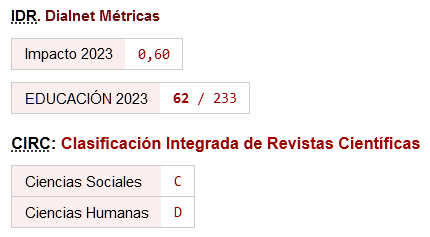Mindfulness in Male Soccer Players: A Cross-Sectional Study
DOI:
https://doi.org/10.46661/ijeri.5398Keywords:
Mindfulness, Male soccer players, Cross-sectional studyAbstract
The present study aims to determine whether mindfulness shows a significant difference based on the male soccer players' amateur/ professional status, position, playing experience, history of receiving mentorship, psychological performance counselling or therapy from a sports psychologist, and status of performing mental training. The study was carried out with 233 adult male soccer players and the Mindfulness Inventory for Sport and Personal Information Form was applied to the participants. As a result of the study, it was found that professional soccer players had higher mindfulness levels compared to amateur soccer players. It was observed that mindfulness levels differed in favor of soccer players who received mentorship or psychological performance counselling, performed mental training and had more experience in sports. It was also observed that attackers had higher mindfulness levels compared to midfielders.
Downloads
References
Aydoğan, H. (2016). Examining Self-Esteem of Professional Football Players in terms of some Variables Journal of Sport Culture and Science, 4(Special Issue 1), 278-290.
Bulğay, C., Tingaz, E. O., Bayraktar, I., & Çetin, E. (2020). Athletic performance and mindfulness in track and field athletes. Current Psychology, 1-8. https://doi.org/10.1007/s12144-020-00967-y
Bühlmayer, L., Birrer, D., Röthlin, P., Faude, O., & Donath, L. (2017). Effects of mindfulness practice on performance-relevant parameters and performance outcomes in sports: A meta-analytical review. Sports Medicine, 47(11), 2309-2321. https://doi.org/10.1007/s40279-017-0752-9
Cohen, J. (1988). Statistical Power Analysis for the Behavioral Sciences (2. Edition). NJ: Erbbaum.
Deyo, M., Wilson, K. A., Ong, J., & Koopman, C. (2009). Mindfulness and rumination: Does mindfulness training lead to reductions in the ruminative thinking associated with depression? Explore, 5(5), 265-271. https://doi.org/10.1016/j.explore.2009.06.005
Gustafsson, H., Skoog, T., Davis, P., Kenttä, G., & Haberl, P. (2015). Mindfulness and its relationship with perceived stress, affect, and burnout in elite junior athletes. Journal of Clinical Sport Psychology, 9(3), 263-281. https://doi.org/10.1123/jcsp.2014-0051
Hayes, S. C., Strosahl, K. D., & Wilson, K. G. (2009). Acceptance and commitment therapy. Washington, DC: American Psychological Association.
Horst, E. (2010). Maximum climbing: mental training for peak performance and optimal experience. Guilford: Rowman & Littlefield.
Kabat-Zinn, J. (1982). An outpatient program in behavioral medicine for chronic pain patients based on the practice of mindfulness meditation: Theoretical considerations and preliminary results. General Hospital Psychiatry, 4, 33–47.
Kabat-Zinn, J., & Hanh, T. N. (2009). Full catastrophe living: Using the wisdom of your body and mind to face stress, pain, and illness. Delta.
Kabat‐Zinn, J. (2003). Mindfulness‐based interventions in context: past, present, and future. Clinical psychology: Science and Practice, 10(2), 144-1. https://doi.org/10.1093/clipsy.bpg016
Kaiseler, M., Poolton, J. M., Backhouse, S. H., & Stanger, N. (2017). The relationship between mindfulness and life stress in student-athletes: The mediating role of coping effectiveness and decision rumination. The Sport Psychologist, 31(3), 288-298. https://doi.org/10.1123/tsp.2016-0083
Karasar, N. (2017). Bilimsel araştırma yöntemleri: kavramlar, teknikler ve ilkeler (27. Baskı), Ankara: Nobel.
Kaufman, K. A., Glass, C. R., & Arnkoff, D. B. (2009). Evaluation of Mindful Sport Performance Enhancement (MSPE): A new approach to promote flow in athletes. Journal of Clinical Sport Psychology, 3(4), 334-356. https://doi.org/10.1123/jcsp.3.4.334
Kaufman, K. A., Glass, C. R., & Pineau, T. R. (2018). Mindful sport performance enhancement: Mental training for athletes and coaches. American Psychological Association. http://dx.doi. org/10.1037/0000048-001
Kline, R. B. (2011). Methodology in the Social Sciences. Principles and practice of structural equation modeling (3rd ed.). New York, NY, US: Guilford Press.
McCarthy, J. J. (2011). Exploring the relationship between goal achievement orientation and mindfulness in collegiate athletics. Journal of Clinical Sport Psychology, 5(1), 44-57. https://doi.org/10.1123/jcsp.5.1.44
Miçooğulları, O., Kirazcı, S., & Özdemir, R. A. (2009). Determination of Sport Imagery Types and Levels with Respect to Soccer Playing Experience. Turkish Journal of Sports Medicine, 44(1), 001-008.
Moen, F., Abrahamsen, F., & Furrer, P. (2015). The effects from mindfulness training on Norwegian junior elite athletes in sport. International Journal of Applied Sports Sciences, 27(2), 98-113. Retrieved from: http://www.sports.re.kr/eng/05publication/Callforpaper.jsp
Pineau, T. R., Glass, C. R., & Kaufman, K. A. (2014). Mindfulness in sport performance. The Wiley Blackwell handbook of mindfulness, 1004-1033. https://doi.org/10.1002/9781118294895.ch52
Reibel, D. K., Greeson, J. M., Brainard, G. C., Rosenzweig, S. (2001). Mindfulness-based stress reduction and health-related quality of life in a heterogeneous patient population. General Hospital Psychiatry, 23(4), 183-192. https://doi.org/10.1016/S0163-8343(01)00149-9
Scott‐Hamilton, J., Schutte, N. S., & Brown, R. F. (2016). Effects of a mindfulness intervention on sports‐anxiety, pessimism, and flow in competitive cyclists. Applied Psychology: Health and Well‐Being, 8(1), 85-103. https://doi.org/10.1111/aphw.12063
Shannon, S., Hanna, D., Leavey, G., Haughey, T., Neill, D., & Breslin, G. (2020). The association between mindfulness and mental health outcomes in athletes: testing the mediating role of autonomy satisfaction as a core psychological need. International Journal of Sport and Exercise Psychology, 1-16. https://doi.org/10.1080/1612197X.2020.1717578
Skordilis, E. K., Gavriilidis, A., Charitou, S., & Asonitou, K. (2003). Comparison of sport achievement orientation of male professional, amateur, and wheelchair basketball athletes. Perceptual and Motor Skills, 97(2), 483-490. https://doi.org/10.2466%2Fpms.2003.97.2.483
Thienot, E., Jackson, B., Dimmock, J., Grove, J. R., Bernier, M., & Fournier, J. F. (2014). Development and preliminary validation of the mindfulness inventory for sport. Psychology of Sport and Exercise, 15(1), 72-80. https://doi.org/10.1016/j.psychsport.2013.10.003
Tingaz, E. 0. (2020a). Examination of Mindfulness According to Some Variables in Student-Athletes of Sports Sciences Faculty. The Journal of Turkish Sport Science, 3(1), 21-28. Retrieved from: https://dergipark.org.tr/en/pub/tsbd/issue/52814/696809.
Tingaz, E. O. (2020b). Adaptation of the Mindfulness Inventory for Sport into Turkish: A Validity and Reliability Study. Spormetre The Journal of Physical Education and Sport Science, 18(1), 71-80. Doi: 10.33689/spormetre.642682
Turhan, M. (2009). Investigating the relationship between competitive motivation and depression, anxiety levels, and personality characteristics in professional soccer. Master's thesis, Maltepe University, Institute of Social Sciences, İstanbul.
Ungerleider, S. (2005). Mental training for peak performance: Top athletes reveal the mind exercises they use to excel. Emmaus, PA: Rodale.
Zhang, C. Q., Si, G., Duan, Y., Lyu, Y., Keatley, D. A., & Chan, D. K. (2016). The effects of mindfulness training on beginners' skill acquisition in dart throwing: A randomized controlled trial. Psychology of Sport and Exercise, 22, 279-285. https://doi.org/10.1016/j.psychsport.2015.09.005
Downloads
Published
How to Cite
Issue
Section
License
Copyright (c) 2020 Emre Ozan TİNGAZ, Oktay KIZAR, Celal BULĞAY, Ebru Çetin

This work is licensed under a Creative Commons Attribution-NonCommercial-NoDerivatives 4.0 International License.












